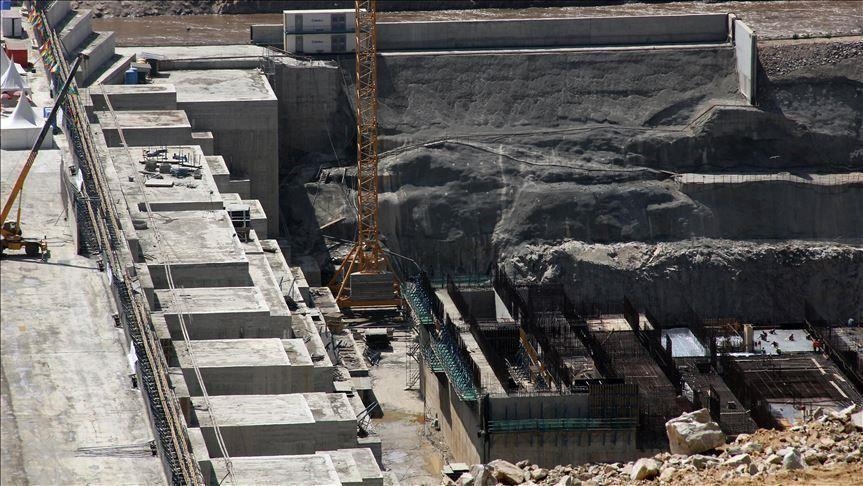‘Sudan, Egypt need to join Ethiopia to save Nile River basin’
On Earth Day, Ethiopian expert urges countries to save ecosystem of river rather fighting on dam construction

ADDIS ABABA, Ethiopia
As Earth Day is being observed this Thursday to show support for protecting the environment, an expert is urging Ethiopia, Sudan, and Egypt to join hands to replenish the degraded Abbay or Blue Nile River Basin.
Speaking to Anadolu Agency, Ethiopian environmental researcher, Belay Semane lamented that these countries were fighting on peripheral issues like water sharing, safety, and size of Grand Ethiopian Renaissance Dam (GERD) rather than discussing ways to save the source of water and its basin.
The Blue Nile or the Abay River, a tributary of the main Nile River originates at Lake Tana in Ethiopia and travels for approximately 1,450 km (900 mi), before meeting the White Nile River just north of the Sudanese capital of Khartoum. It contributes more than 85% of water to the Nile River.
He said that by traversing the basin, one can easily see gorges, widening gullies, thinning forests, and all the other signs of land degradation.
“The basin is very wide and covers 30% of Ethiopia’s total land area,” said Belay, who is a professor and instructor at the Department of Environmental Studies and Agricultural Development at the Addis Ababa University.
He said that 50% of the country’s agricultural output comes from the basin that is also inhabited by about 35 million of the country’s 110 million population.
“An ever-growing demand for food, shelter, and fuelwood by a fast-increasing population means that forests get depleted exposing the soil, which then gets eroded,” he said, adding the situation was a cause of worsening food insecurity and deepening poverty.
Identifying policy gaps, the professor said there was a need to stop hillside farming, open-land grazing by livestock, and preventing mountains, forest lands, and gorges from human activity.
An estimated 90-95% of the population within the Abbay basin – a vast area that stretches from Jimma in southwestern Ethiopia in Oromia State to Tekezze River in the northwestern part of the country – depends on agriculture for the livelihoods. They lead a hand-to-mouth existence.
“The land degradation is aggravated due to torrents created by the sloppiness within the basin resulting in considerable soil getting washed away to the downstream countries of Egypt and Sudan,” said Belay.
Cooperate to save the river
He said Egypt and Sudan instead of cooperating with Ethiopia to save the river basin are engaged in opposing the $5 billion worth GERD. He said these neighboring countries should have cooperated with Ethiopia to find ways to replenish the degraded lands of the Abbay basin, the major source of the Nile water.
“But it so happened that the downstream countries have their eyes fixed only on the short-term flow of the river; they want the water for themselves only, they want the soil being washed away from Ethiopian highlands,” he said.
Estimates suggest that Ethiopia is losing 1.5 million metric tons of fertile soil from the Abbay basin annually. This alluvial soil rich in nutrients unloads on the plains of Sudan and Egypt.
“Egypt and Sudan should be making payment for ecosystem service to Ethiopia, a practice familiar in Southern Africa and Asia to keep the health of the ecosystem of the source country or region,” said.
He asked the Ethiopian government to make such a demand formally in the future. “While one milks the cow, one needs to take care of its health,” he added.
He also suggested that a part of income say 0.1-0,2% generated from selling electricity produced by the GERD should be used to attend to environmental issues across the Abbay basin.
The professor further suggested investment in modernizing agriculture to make it sustainable and environmentally friendly.
Anadolu Agency website contains only a portion of the news stories offered to subscribers in the AA News Broadcasting System (HAS), and in summarized form. Please contact us for subscription options.







